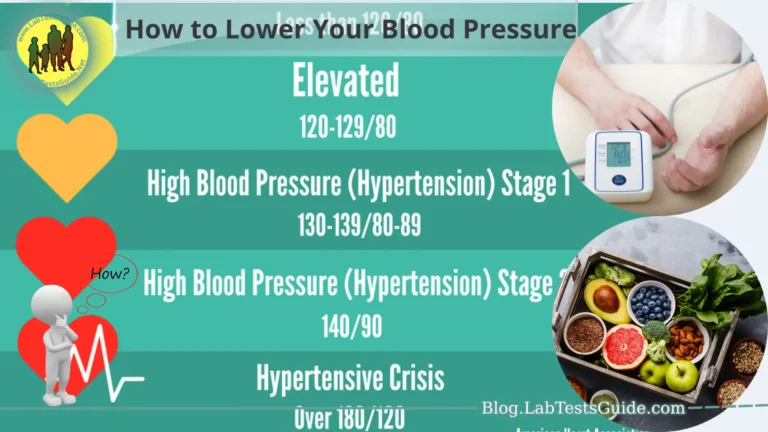The skin is the largest organ in the human body and acts as a protective barrier against external factors such as harmful chemicals, pathogens and physical injury. However, exposure to certain substances or conditions at work can damage the skin and lead to work-related skin problems. These skin problems can range from mild irritations to severe dermatitis or even skin cancer. In this article, we will discuss how to protect yourself from work-related skin problems and promote skin health in the workplace.

Understanding Job-related Skin Problems:
Job-related skin problems are conditions that develop as a result of exposure to certain substances or conditions in the workplace. Some of the most common work-related skin problems include contact dermatitis, irritant dermatitis, and skin cancer.
Contact dermatitis occurs when the skin comes into direct contact with an irritant or allergen, causing a reaction such as redness, itching, and swelling. Irritant dermatitis, on the other hand, is caused by repeated exposure to irritants such as chemicals, detergents, or solvents, and can also cause red, itchy, and scaly skin. Skin cancer can develop from prolonged exposure to sunlight, radiation, or certain chemicals.
Workers in industries such as healthcare, construction, cleaning, food processing, and agriculture are at higher risk of developing work-related skin problems due to their frequent exposure to irritants, chemicals, and other substances.
Identifying High-risk Jobs:
Here are some common high-risk jobs that require extra skin protection.
- Health workers: They are frequently exposed to infectious agents and chemicals such as disinfectants and latex.
- Construction workers: They are exposed to cement, solvents, and other chemicals that can cause skin problems.
- Hairdressers and estheticians: They work with hair dyes, permanent waves, and other chemicals that can cause contact dermatitis.
- Cleaners and janitors: They frequently work with cleaning agents, disinfectants, and other chemicals that can irritate the skin.
- Farmworkers: Are exposed to pesticides, herbicides, and other chemicals used in agriculture that can cause skin problems.
- Mechanical: They work with solvents, lubricants and other chemicals that can cause skin irritation.
- Food handlers: are exposed to detergents, sanitizers, and other chemicals used in food processing that can cause skin problems.
Identifying high-risk jobs is the first step in developing appropriate preventative measures to reduce the risk of developing work-related skin problems.
Common Causes of Job-related Skin Problems:
Some of the most common causes of job-related skin problems include.
- Chemical Exposure: Exposure to chemicals such as detergents, solvents, acids, and alkalis can cause skin irritation and dermatitis.
- Physical Agents: Exposure to physical agents such as friction, pressure, and heat can cause skin irritation and damage.
- Biological Agents: Exposure to biological agents such as bacteria, fungi, and viruses can cause skin infections and other skin problems.
- Allergens: Exposure to allergens such as latex, metals, and certain chemicals can cause allergic contact dermatitis.
- Ultraviolet radiation: Exposure to ultraviolet (UV) radiation from the sun or other sources can cause skin cancer.
- Poor Hygiene: Poor personal hygiene, such as not washing your skin regularly, can lead to skin infections and other skin problems.
- Genetics: Certain genetic factors can make some people more susceptible to developing work-related skin problems.
It is important to identify the specific causes of work-related skin problems in order to implement the appropriate preventive measures to reduce the risk of developing these conditions.
Personal Protective Equipment :
Here are some types of PPE that can help prevent job-related skin problems.
- Gloves: Wearing gloves can help protect hands from exposure to chemicals, irritants, and allergens.
- Protective Clothing: Protective clothing, such as aprons, lab coats, and coveralls, can help protect skin from exposure to chemicals and other irritants.
- Goggles and Face Shields: Wearing goggles and face shields can protect the eyes and face from exposure to chemicals and other hazards.
- Respirators: Respirators can help protect workers from exposure to airborne hazards such as dust and chemicals.
- Barrier Creams: Barrier creams can help protect the skin from exposure to irritants and chemicals.
- Hand hygiene: Regular hand washing and the use of alcohol-based hand rubs can help reduce the risk of skin infections and other skin problems.
It is important to choose the appropriate PPE for the specific job-related hazards and wear it correctly to ensure maximum protection.
Skin Care Products:
Here are some tips for choosing and using skin care products.
- Use mild, fragrance-free products: Avoid using harsh soaps and fragranced skin care products that can irritate the skin.
- Moisturize regularly: Regularly moisturizing your skin can help prevent dryness and cracking, which can lead to skin infections and other problems.
- Choose products with natural ingredients: Products with natural ingredients like aloe vera, chamomile, and calendula can help soothe and protect the skin.
- Use sunscreen: Using sunscreen with an SPF of 30 or higher can help protect skin from the sun’s UV radiation.
- Avoid Hot Water: Hot water can dry out your skin, so it’s best to use lukewarm water when washing your skin.
- Shower or bathe after work: Showering or bathing after work can help wash away any irritants or chemicals that may have come in contact with your skin.
- Seek medical attention for skin problems: If you develop any skin problems such as rashes, blisters, or itching, seek medical attention immediately to prevent the condition from worsening.
By following these tips, you can help protect your skin from work-related hazards and prevent skin problems.
Home remedies For skin care:
Here are some examples.
- Oatmeal Bath: Adding oatmeal to a bath can help soothe dry, itchy skin.
- Coconut Oil : Applying coconut oil to the skin can help hydrate and protect it.
- Aloe vera: Applying aloe vera gel to the skin can help soothe and hydrate the skin.
- Honey: Applying honey to the skin can help hydrate and soothe it.
- Tea Tree Oil: Applying diluted tea tree oil to the skin can help prevent infection and relieve inflammation.
- Cucumber: Placing cucumber slices on the skin can help soothe and hydrate it.
- Witch Hazel : Applying witch hazel to the skin can help reduce inflammation and soothe irritation.
It is important to note that while these home remedies can be effective, they may not work for everyone and some people may have allergies or sensitivities to certain ingredients. It is always a good idea to test a small area of skin first and speak to a healthcare professional if you have any concerns or if your skin condition worsens.
Early Detection and Treatment:
Here are some steps you can take.
- See a healthcare professional: If you notice any changes to your skin, make an appointment to see a healthcare professional. They can help diagnose the problem and recommend the appropriate treatment.
- Follow the treatment plan: If a health professional recommends a treatment, it is important to follow the plan carefully. This may include the use of prescription drugs or avoiding certain irritants.
- Take Preventative Measures : To avoid further skin problems, take preventative measures such as using personal protective equipment and skin care products, practicing good hygiene, and avoiding known irritants.
- Tell your employer: If you experience work-related skin problems, tell your employer as soon as possible. They may be able to make changes to your work environment or provide additional protective equipment to help prevent future problems.
- Get regular checkups: If you have a high-risk job, it’s important to get regular checkups to monitor the health of your skin and catch any potential problems early on. Talk to your healthcare professional about how often you should have checkups.
Legal Rights and Protections:
Here are some key points to keep in mind.
- OSHA Regulations: The Occupational Safety and Health Administration (OSHA) has established regulations to protect workers from work-related skin problems. Employers must provide personal protective equipment, training, and a safe work environment to prevent injuries and skin diseases.
- Workers’ Compensation: If you experience a work-related skin problem, you may be eligible for workers’ compensation benefits. This can help cover the costs of medical treatment and lost wages due to time off work.
- Anti-Discrimination Laws: If you experience a work-related skin problem, you are protected by anti-discrimination laws. Employers cannot discriminate against or retaliate against you for reporting a work-related injury or illness.
- Disability Laws: If a work-related skin problem results in disability, you may be eligible for additional legal protections under the Americans with Disabilities Act (ADA). This may include reasonable accommodations in the workplace to help you perform your job duties.
- Consult an attorney: If you believe your employer is violating your legal rights or protections, consult an attorney who specializes in workplace safety and workers’ compensation law. They can help you understand your options and navigate the legal system.
Conclusion:
Work-related skin problems can be painful, debilitating, and even life-threatening in some cases. However, by taking steps to prevent and treat these conditions, you can protect your skin and maintain your health and well-being at work. This may include wearing personal protective equipment, using skin care products, and seeking early treatment for any skin problems that arise. It is also important to understand your legal rights and protections under OSHA regulations, workers’ compensation, and discrimination and disability laws. By being proactive and informed, you can minimize the risk of work-related skin problems and protect yourself from harm.






